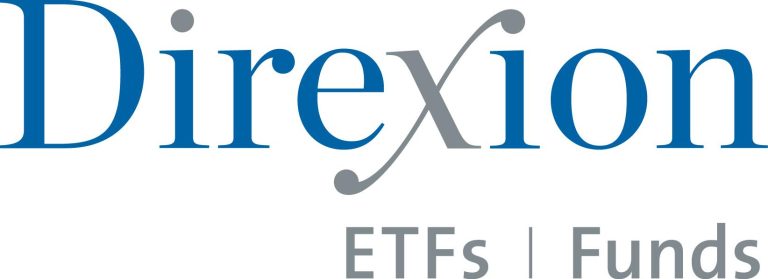
Usually, it’s parents who wonder about their kids’ financial stability as they begin navigating adulthood. But what if you’re 23 and worried about your 50-something parents because they’re deep in debt?
You may be concerned if your parents, in their early 50s, had borrowed more than $100,000 in the past two years. This especially holds true if their outgoings exceed their monthly income. When monthly income is eaten up by mortgage, loan payments and ongoing bills, and you need to borrow more to pay existing debts and stay afloat, you’re in trouble.
Trending Now
- Thanks to Jeff Bezos, you can now become a landlord for as little as $100 — and no, you don’t have to deal with tenants or fix freezers. Here’s how
- I’m 49 years old and have nothing saved for retirement — what should I do? Don’t panic. Here are 6 of the easiest ways you can catch up (and fast)
- Dave Ramsey warns nearly 50% of Americans are making 1 big Social Security mistake — here’s what it is and 3 simple steps to fix it ASAP
If they’re prepared to start attacking it, it’s important for your parents to shed their debt ahead of retirement, which may, at this point, only be about a decade away. Getting them out of debt as quickly as possible means they can build a bigger retirement fund, especially if they have, say, just $400,000 saved for their later years. Here’s how to approach the situation.
Make sure you’re in the clear first
If your parents have debt, some of it may have been incurred to help you. If so, it’s natural to want to help your parents pay it off.
However, before stepping in, you need to make sure your own finances are under control and that you can afford to help them without jeopardizing your future. Help doesn’t just come in the form of money. It can also be offering time and support.
One of the first things you should do is check your credit report to see if any of your parents’ debts are in your name. If they are, you could be on the hook for making payments if your parents fall behind.
You should also encourage your parents to check their own credit reports to get a sense of where they stand. If you see that your parents are delinquent on any of their outstanding loans, a serious intervention may be necessary — one that perhaps involves you moving back in with them temporarily and contributing to household expenses. Once you’ve helped your parents get caught up on their payments, they can review different ways to get ahead of that debt.
Read more: Here are 5 ‘must have’ items that Americans (almost) always overpay for — and very quickly regret. How many are hurting you?
Explore solutions for tackling debt
Americans aged 44 to 59 have an average of $283,677 in mortgage debt and $30,879 in non-mortgage debt, according to Experian [1]. So if your parents are carrying debt, they’re not alone.
There are a few different options your parents can look at for paying off debt. One is the snowball method, which has them paying off their debts in order of smallest balance to largest. If your parents have some small credit card balances, for example, they’d pay those off before tackling larger debts like their personal loans and mortgage.
With the avalanche method, meanwhile, you tackle debts in order of highest interest rate to lowest. This usually means paying off credit card debt first. From there, they may have a higher interest rate on their personal loan than their mortgage, in which case that would go next.
Consolidating debt can sometimes make it easier to get ahead, too. But in this situation, taking out a new loan to pay off the others may not be the best solution. If the bulk of your parents’ debt is in a personal loan and mortgage, they may not get a much better rate by rolling all of that into a new loan today. That’s because borrowing rates are high across the board.
A better bet is to review your parents’ budget and help them find ways to trim expenses so they can make extra payments on their existing loans. You could also give your parents tips on how to join the gig economy for some extra cash.
Encourage your parents not to tap their retirement savings
It can be very tempting to cash out a 401(k) to pay off debt. But that’s not something your parents should do.
If they have $400,000 in a 401(k), that’s a nice amount of money, but it’s also a sum they might easily need during a decades-long retirement. They’re better off trying to boost their income and reduce expenses rather than raiding their long-term savings and potentially ending up with no money to support themselves in retirement other than Social Security.
Also, if your parents are in their early 50s, they’re not old enough to withdraw from a 401(k) plan penalty-free. If they raid their 401(k) before reaching age 59½, they could be taxed an additional 10% of the amount withdrawn.
Don’t discount bankruptcy, but don’t fall back on it, either
When debts reach the point of becoming unmanageable, bankruptcy can be an option. This is usually seen as a last resort, as bankruptcy can be expensive, destroy credit scores and make borrowing money hard for many years after. However, sometimes there is no alternative.
There are two main bankruptcy options: Chapter 7, which involves eliminating most unsecured debts by liquidating non-exempt assets, or Chapter 13, which involves restructuring debts.
Qualifying for Chapter 7 is tricky. To be eligible, your parents’ current monthly income must be lower than the median monthly income in their state for their household size, or they can’t have disposable income above a certain threshold.
The Bureau of Labor Statistics puts the median annual U.S. income at about $62,000 per year. If your parents earn $8,000 a month, or about $96,000 per year, they likely won’t be eligible for Chapter 7, regardless of where they live.
The alternative is Chapter 13. If your parents want to keep their assets or don’t qualify for Chapter 7, this is the main option available to them, but there can be negative consequences. Like Chapter 7, a Chapter 13 bankruptcy stays on credit reports for many years. And there can be expensive court and attorney fees to bear in the course of reorganizing debts.
A better solution is to work with your parents on careful budgeting and spending so they can reduce their debt over the next decade before retiring. You may also be able to introduce them to different online tools or apps that streamline the process. All of this, of course, hinges on how willing your parents are to face the seriousness of their situation — and their willingness to course-correct.
What to read next
- Robert Kiyosaki warns of a ‘Greater Depression’ coming to the US — with millions of Americans going poor. But he says these 2 ‘easy-money’ assets will bring in ‘great wealth’. How to get in now
- The ultrarich monopoly on prime US real estate is over — use these 5 golden keys to unlock passive rental income now (with as little as $10)
- This tiny hot Costco item has skyrocketed 74% in price in under 2 years — but now the retail giant is restricting purchase. Here’s how to buy the coveted asset in bulk
- Want an extra $1,300,000 when you retire? Dave Ramsey says this 7-step plan ‘works every single time’ to kill debt, get rich in America — and that ‘anyone’ can do it
Stay in the know. Join 200,000+ readers and get the best of Moneywise sent straight to your inbox every week for free. Subscribe now.
Article sources
At Moneywise, we consider it our responsibility to produce accurate and trustworthy content people can rely on to inform their financial decisions. We rely on vetted sources such as government data, financial records and expert interviews and highlight credible third-party reporting when appropriate.
We are committed to transparency and accountability, correcting errors openly and adhering to the best practices of the journalism industry. For more details, see our editorial ethics and guidelines.
[1]. Experian. “Experian Study: Average U.S. Consumer Debt and Statistics”
This article provides information only and should not be construed as advice. It is provided without warranty of any kind.


